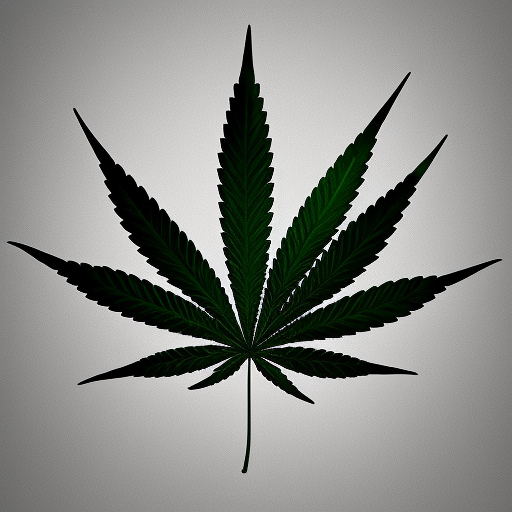
Yo, what’s good? My name is Dan and today we’re gonna talk about weed and depression. Now, we all know that marijuana can help with a lot of health issues like pain, nausea, and even sleep problems. But can it also help with depression? Some people say yes, but is there any scientific evidence to back that up? Let’s find out.
Depression is a serious mental disorder that affects a lot of people in America. In fact, around 7% of adults have at least one major depressive episode in a year. The cause of depression is complicated and there are many theories out there. Some scientists think it’s due to an imbalance of certain neurotransmitters in the brain like dopamine, serotonin, and norepinephrine.
Now, we all know that weed (specifically THC) can stimulate neurons that release dopamine. So, some people assume that marijuana could be an effective treatment for depression. But it’s not as simple as that.
There’s a possibility that marijuana and depression are connected through the endocannabinoid system (ECS). The ECS is a network of neurotransmitters and receptors in our bodies that help with our emotions and behaviors. Everyone has endocannabinoids and their receptors, even if they’ve never smoked weed before. The cannabinoids in marijuana are similar to anandamide, which is one of the body’s natural endocannabinoids. Anandamide is known as the “bliss molecule” because it can make you feel happy and motivated.
There’s an enzyme called fatty acid amide hydrolase (FAAH) that breaks down anandamide in the body. But some studies have shown that inactivating FAAH could have pain-relieving, anti-inflammatory, anti-anxiety, and antidepressant effects.
CBD, another compound found in marijuana and hemp, may also play a role in preventing the breakdown of anandamide by FAAH. Recent studies have looked at the potential relationship between CBD and depression, and some have found that it could have antidepressant and anti-anxiety properties.
But here’s the thing: there’s no clinical evidence yet that supports the use of cannabis for depression. More research is needed to understand how THC and CBD interact with the biochemical pathways involved in depression.
Another factor to consider is the biphasic effect of marijuana. Basically, this means that different amounts of weed can have different effects on the body. A small amount of weed might help you relax, but a higher amount could make you feel anxious or paranoid.
Some people think that higher doses of weed will give them stronger therapeutic benefits, but that’s not always the case. When your brain is overwhelmed with THC, it can actually deactivate endocannabinoid receptors. This could be counterproductive for people who want to get the most out of weed’s therapeutic benefits.
That’s where microdosing comes in. Microdosing involves taking very small amounts of weed at a time. Recent studies have shown that microdosed cannabis could be effective for pain relief. It’s possible that microdosing could also help with depression, since consuming too much THC can overwhelm your body and cause more harm than good.
So, should you use weed for depression? It’s hard to say. While there’s no clinical evidence yet, some studies have shown that CBD could have antidepressant properties. If you’re interested in using cannabis for depression, talk to a medical cannabis doctor if it’s legal in your state. They can help you figure out if it’s a good idea for you and recommend products that are high in CBD and low in THC.
Overall, more research is needed to fully understand how cannabis can be used to treat depression. But it’s definitely worth keeping an eye on as scientists continue to study this complex relationship. Stay safe, stay healthy, and stay lifted. Peace out.



Yo this post hit hard, I feel the struggle with the blues and how weed help cope. It aint just about chillin, it deep and personal. Healing through the pain, ya know what I mean?
Yo dis post hit different for real. Ain’t nothin like chillin with some herb while listenin to them blues. They both speak to the soul ya feel me? It be all about finding that vibe and lettin the music and the smoke take you away.